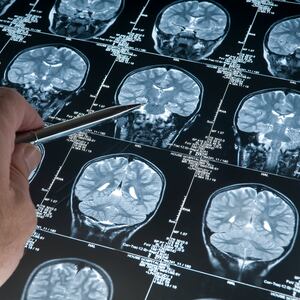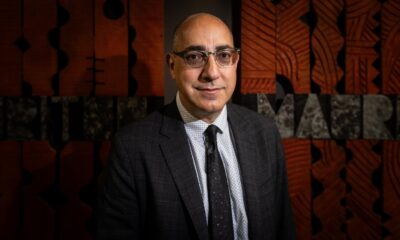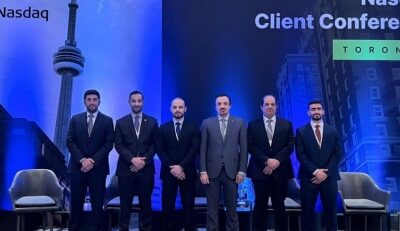Health
Neurologists Explore New Therapies to Enhance Brain Recovery

For over 15 years, Dr. Sean Dukelow has treated stroke patients at Foothills Hospital in Calgary, Canada. His primary method has been neurorehabilitation, a therapeutic approach that leverages the brain’s natural plasticity through repetitive exercises in speech, physical, and occupational therapy. While this technique has proven effective, particularly in promoting neuron growth and new connections, options for enhancing long-term recovery remain limited.
The current landscape of post-stroke therapies primarily includes invasive implants that stimulate the vagus nerve or spinal cord. Now, a growing number of neurologists are investigating whether substances or devices could significantly accelerate brain recovery, potentially making a profound difference in patient outcomes. Dr. Dukelow emphasizes the critical nature of these advancements: “That turbo boost may be the difference between you walking again, talking again, being able to get home, versus having to go to a nursing home.”
Emerging Therapies Show Promise
Among the promising contenders in this emerging field are transcranial magnetic stimulation (TMS), antidepressant medications, and psychedelics. Traditionally used to treat conditions like depression, PTSD, and obsessive-compulsive disorder, these therapies might also have unexpected benefits for stroke recovery. Experts believe that these methods could engage the neural circuits involved in memory and learning, which are vital for recovery after a stroke.
The potential of these therapies lies in their ability to help the brain establish new pathways, compensating for dead or damaged neurons. By doing so, patients may regain essential functions such as walking, speaking, and remembering—functions that are often lost following a neurological event. Researchers are now exploring whether therapies designed to reset disordered brain functions can also facilitate repair in damaged areas.
Scientific Insights and Future Research
As the medical community delves deeper into this area, ongoing studies aim to clarify the mechanisms by which these therapies may aid recovery. Initial findings suggest that TMS can enhance cortical excitability and promote neuroplasticity, potentially leading to improved motor function in stroke patients. Meanwhile, the use of antidepressants has been linked to neurogenesis, the process of generating new neurons, which could be crucial in recovery contexts.
Psychedelics are gaining attention for their ability to promote emotional resilience and cognitive flexibility, qualities that could be invaluable in rehabilitation. As researchers investigate these substances further, the hope is that they will uncover ways to harness their therapeutic effects not just for mood disorders but also for neurological recovery.
In conclusion, while traditional neurorehabilitation remains a cornerstone of post-stroke treatment, the exploration of these new therapies presents an exciting frontier in the field. The promise of enhancing brain recovery through techniques previously limited to psychiatric applications could transform the rehabilitation landscape, offering new hope to those affected by neurological catastrophes.
-

 Sports2 months ago
Sports2 months agoNetball New Zealand Stands Down Dame Noeline Taurua for Series
-

 Entertainment2 months ago
Entertainment2 months agoTributes Pour In for Lachlan Rofe, Reality Star, Dead at 47
-

 Entertainment3 weeks ago
Entertainment3 weeks agoNew ‘Maverick’ Chaser Joins Beat the Chasers Season Finale
-

 Sports2 months ago
Sports2 months agoSilver Ferns Legend Laura Langman Criticizes Team’s Attitude
-

 Sports1 day ago
Sports1 day agoEli Katoa Rushed to Hospital After Sideline Incident During Match
-

 Politics1 month ago
Politics1 month agoNetball NZ Calls for Respect Amid Dame Taurua’s Standoff
-

 Entertainment2 months ago
Entertainment2 months agoKhloe Kardashian Embraces Innovative Stem Cell Therapy in Mexico
-

 World3 months ago
World3 months agoPolice Arrest Multiple Individuals During Funeral for Zain Taikato-Fox
-

 Sports3 months ago
Sports3 months agoGaël Monfils Set to Defend ASB Classic Title in January 2026
-

 Entertainment1 month ago
Entertainment1 month agoTyson Fury’s Daughter Venezuela Gets Engaged at Birthday Bash
-

 Sports1 month ago
Sports1 month agoHeather McMahan Steps Down as Ryder Cup Host After Controversy
-

 World2 weeks ago
World2 weeks agoSevere Winds Hit New Zealand, Over 100 Flights Canceled





















